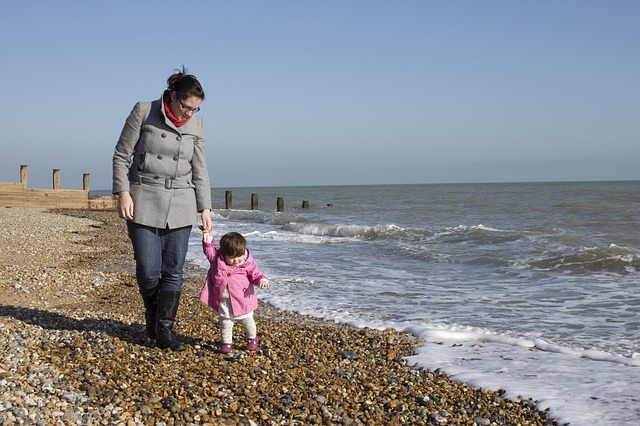Ten Posts For Beginners To Help You Ease Into Russian Posted by Maria on Aug 11, 2016 in Russian for beginners
You may have noticed that our blog’s been covering some of the more intricate aspects of the Russian language and culture, from movie quotes to concepts specific to Russian. We are always happy to support our advanced readers — but we don’t want to forget about beginners, either! If you are new to learning Russian, here are some past posts that will get you up to speed.
First Steps
If you are brand new to Russian, you may want to learn some quick meet-and-greet phrases listed in Quick Start Guide to Speaking Russian. You will learn to say “Hello,” “My name is,” “Where are you from?” and so on. For your convenience, a transliteration in Latin letters is provided.
Since it may not very clear how to pronounce these words based on the transliteration, you may want to read Three Basic Russian Words You Shouldn’t Be Scared To Pronounce, which breaks down three popular Russian words syllable by syllable. If you would like to learn to read Russian, check out our alphabet courses!
Further useful survival phrases can be found in Top Ten Russian Phrases, along with explanations on how and when to use them. These phrases will help you communicate in everyday situations, such as saying “Excuse me,” asking where the washroom is, or asking for an item you would like to buy.
Once you are ready to build us a basic arsenal of Russian vocabulary, you may want to read 100 Must-Know Russian Words and How to Learn Them. This post lists the most frequent words in the Russian language, breaking them down into 5 categories — nouns, verbs, adjectives, adverbs, and other. This is a good starting point to understanding some basic Russian texts and dictionary definitions. To keep building your vocabulary, make sure you subscribe to the word of the day.
Practical Phrases
The following posts will help you communicate in specific situations. Russian Vocabulary: Finding and Getting Places in Russia will teach you how to find your way around a Russian-speaking destination. You will learn how to ask for directions and recommendations.
Another post, Russian for Travel, is dedicated to the broader field of travel, including airport check-in, hotel reservations, and rail travel. You will hear what a typical flight announcement sounds like in Russian and learn about student discounts and privacy options in Russian trains.
We realize that no one knows all the words in a language, least of all beginning students, so Basic Russian: “What Is It?” will equip you with the skills needed to ask what something is, what something is called, or what the English translation for a Russian word is.
Finer Points
You might have heard that Russian has a relatively free word order. Does that mean that you can arrange the words in a sentence in any order? Well, not quite. Word Order and Logical Emphasis will help you recognize some patterns and reasons behind the Russian word order.
Beginners will quickly learn that Russian has formal and informal registers for speaking to people. However, this distinction does not only affect the personal pronouns and their corresponding verbs, but also a slew of “politeness” phrases like “Excuse me” and “Goodbye.” Beyond ты and вы — formality in Russian helps you make sense of the distinction.
Finally, once you are ready to type some search queries, comments, and maybe even emails in Russian, the post Digital Russian: How To View and Input Russian Text will guide you through the different input methods available for Russian. You will learn about the importance of character encoding and font support for the Cyrillic alphabet and, of course, about enabling typing in Cyrillic on your device!
I’d like to reach out to beginning students of Russian — your challenge is to go through this list, if you haven’t already. Let me know how many/which articles you get a chance to read. Do you feel you have a better grasp of Russian after reading them? What else do you wish was covered on this blog?

Build vocabulary, practice pronunciation, and more with Transparent Language Online. Available anytime, anywhere, on any device.







Comments:
Eugene S.:
Well it seems you read my first comment that I left, and left everything I might need for my journey to learn Russian. I already do speak French and Greek and this new journey is fascinating.
Thank you, Maria. This is a big help. 🙂
Maria:
@Eugene S. Thank you, Eugene, and good luck on your Russian journey! В добрый путь!
Eugene S.:
Dear Maria, I think that your translations for “word of the day”e.g. would be more helpful and informative if you would use a literal translation rather than the vernacular so we could learn the actual meaning of the words first. For more advanced lessons the figurative translation is more natural of course. Thanks for considering this suggestion.
Yours truly, Gene S. 🙂
Maria:
@Eugene S. Hi Eugene,
Thank you for your comment. I’m not in charge of Word of the Day, but I’ll be sure to pass your feedback along to the team!
Transparent Language:
@Eugene S. Hi Eugene! The Word of the Day was designed to teach natural, colloquial language to learners of all levels. In our beginner courses in Transparent Language Online, we typically provide hints or comments to explain difficult non-literal translations, but the Word of the Day is meant to be only a preview. We hope that WOTD subscribers will be intrigued enough by the new words and phrases we provide that they will look them up on their own to learn more about the usage (a great practice for any learner!) We hope you’ll still keep learning with us. -WOTD Team